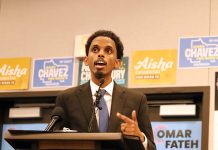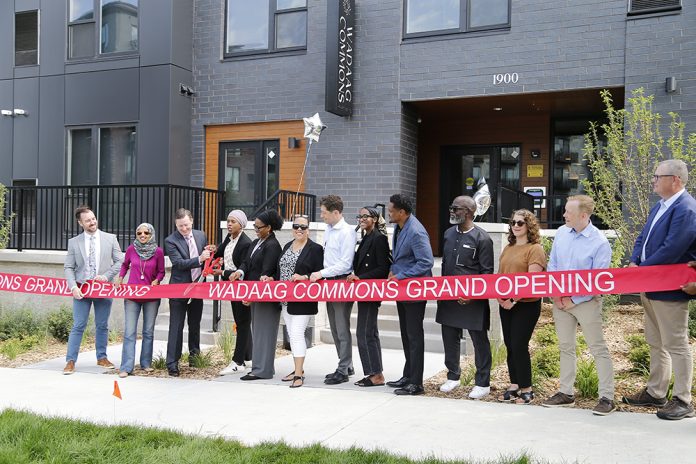
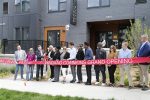
The wait is over for families that have been waiting for the completion of Minneapolis’ newest affordable complex in the Seward neighborhood.
The grand opening of Wadaag Commons was celebrated by U.S. Rep. Ilhan Omar, Minnesota Housing Commissioner Jennifer Ho, Hennepin County Commissioner Angela Conley, Mayor Jacob Frey, Councilman Jamal Osman and project partners on Tuesday, July 29, with a ribbon-cutting ceremony.
Wadaag – the Somali word for sharing – was developed by Noor Companies, an affordable housing developer that also rebuilt the Target on Lake Street that was destroyed during the George Floyd uprising – as well Estes Funeral Chapel in North Minneapolis, the only Black-owned funeral home in the Twin Cities.
“It’s built with premium materials, 60% of this building is brick and it should last more than 100 years,” said Nawal Noor, CEO of Noor Companies. “Solar panels will be going on the roof. Because I truly believe that everyone deserves a sustainable home and a beautiful place that they can go to.”
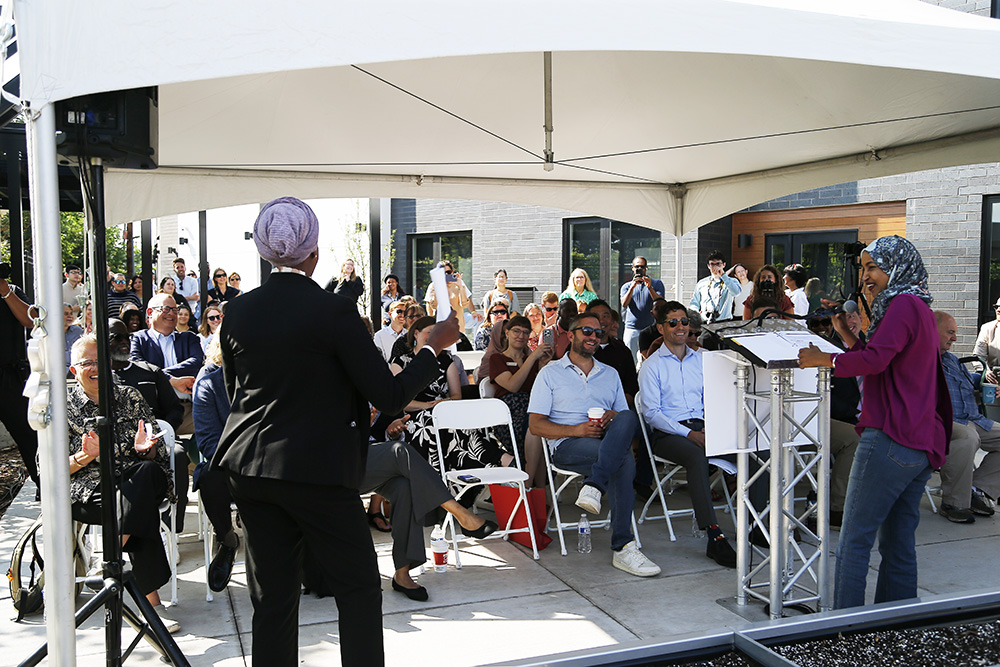
The development consists of 39 units that are three- and four-bedrooms and will cater to the large East African families that Mayor Frey said was critical because “families deserve to have the space so that not everyone is directly on top of one another.” The city of Minneapolis contributed $14 million to the project and the mayor said “It’s worth every dollar.”
The transit-oriented complex also has a playground and features modern amenities like electrical vehicle charging stations, bike racks, a sundeck and garages. A special feature of the playground is that it has lighter color tones and some sensory features to cater to children on the autism spectrum.
Commissioner Conley said the county will continue to prioritize housing projects like Wadaag that “uplifts the humanity of the families and the individuals that will become our future neighbors.” Her point was echoed by Councilmember Osman who represents the area where the complex is located. Osman also chairs the City Council’s business housing and zoning committee and said that when projects come before his committee “first thing I ask is like, ‘do we have a large unit here?’ I know it’s not economically smart for some of the developers to build large units, but there are families with seven kids, eight kids, there are families with special needs that need that extra room.”
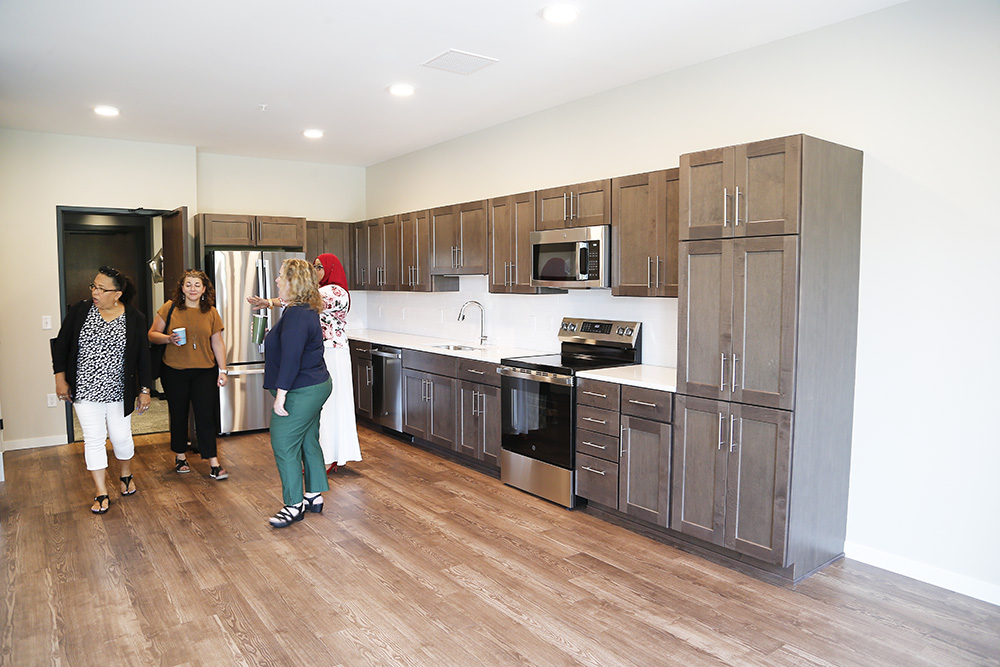
A total of $28 million in public investments went into the project from federal, state, county and city funding. Noor Companies was the lead in the project that included a partnership with Minneapolis-based nonprofit developer Redesign and U.S. Bank as a limited partner, or the “money partner” as one bank representative quipped at the event.
Eligible families for the units are those that earn 30% of the area median income, and with only 39 units, there is still a large unmet need according to Noor because “we have 2,000 people on the wait list.”
Noor narrated some of the challenges she faced, including some financing rejections before finally getting a yes from important players like Minnesota Housing, the state agency responsible for financing affordable housing.
“I would say building a Target store in three months is way easier than doing affordable housing. The development world is not easy, especially when you face prejudice, pushback, because you’re different, you’re a woman of color. I’ve heard no more times than I can count,” Noor said. “But I carried the responsibility because I knew it was possible and our community needed it.”
Commissioner Ho praised Noor for not giving up despite multiple rejections from her agency before financing came through.
“Thanks for being persistent. Thanks for being patient with me. Thanks for understanding that it’s not a judgment of a good project or a bad project,” Ho said. “It’s just I don’t have enough money to fund all the good that we need in this state.”
Noor said she believes she is the first Somali developer to receive financing for a project of this scale from Minnesota Housing.
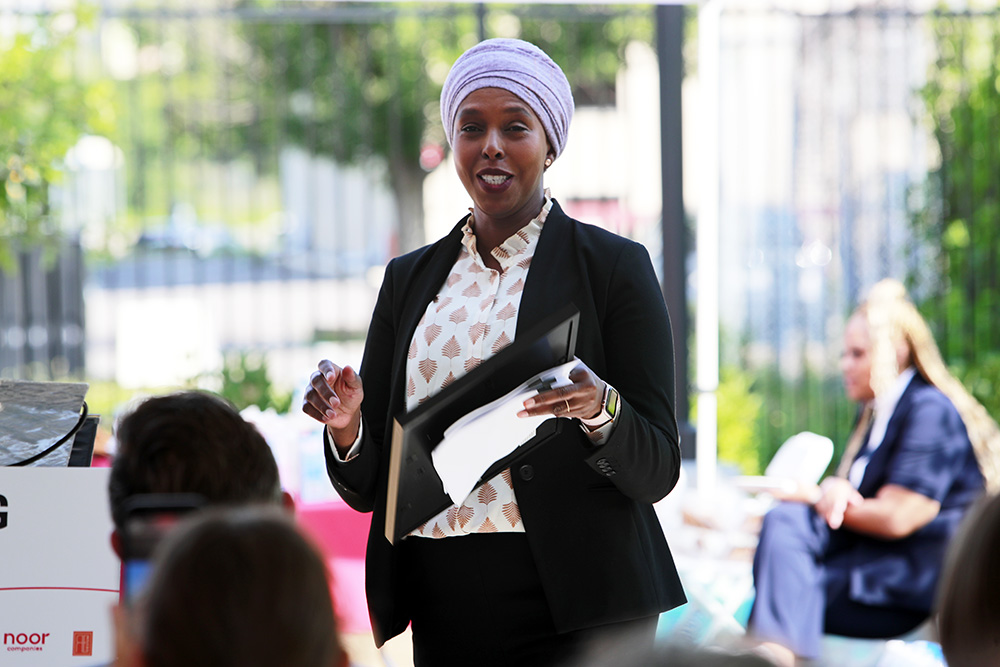
The Twin Cities region still faces challenges in meeting its affordable housing goals, according to the Federal Reserve Bank of Minneapolis. In 2023 for instance, as Wadaag was preparing to break ground for construction, the region barely surpassed the Metropolitan Council’s goal of creating 2,090 new affordable housing units per year by just 100 units. The Metropolitan Council is the regional governmental agency created by the Legislature to coordinate planning and development in the seven counties within the Twin Cities metro area.
U.S. Rep. Ilhan Omar, who grew up with Noor in the Cedar Riverside area, and helped secure $1.8 million in federal funding, said the new complex is a good use of taxpayer funds because it meets the needs of providing new and affordable large family housing, and also serves those facing homelessness. Nine of the units will be dedicated to homeless families.
“The inclusion of sensory-based playground to ensure children with autism can have a place to play, and a provision of garden lots for residents to grow their own food are thoughtful details,” she said. “Truly makes this a home.”
At the conclusion of her remarks, Omar surprised Noor with a congressional record titled “Honoring Wadaag Commons.”
About Richard Ooga, Mshale PhotoJournalist
Richard Ooga is Mshale Newspaper's chief photographer.


 (2 votes, average: 4.50 out of 5)
(2 votes, average: 4.50 out of 5)
